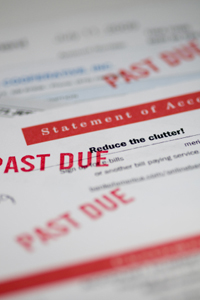
Investing in Real Estate
Real estate
investing is big business these days, but just as with any “boom” there are some misconceptions out there about what’s really trending. Steve Cook, real estate and government writer, discredits five popular real estate investing myths in his article “
Buying a Home: Facts and Fictions about Investing” on the Equifax Finance Blog.
Myth 1: Real estate investors are basically flippers who buy and sell properties as fast as they can. Flipping isn’t easy these days, because home prices are still incredibly low in most areas. Investors want to buy low and sell high and flippers are having a hard time doing that. They can buy low, but just can’t sell high.
Myth 2: Real estate investors must be rich because they buy homes with cash. According to a study by the National Association of Realtors, 51% of investors did not pay cash – they either took out mortgages on the homes and lived there while fixing them up or they took out home equity loans or second mortgages on their homes. Of the 49% reportedly paying cash, many of those were actually bought with loans from real estate investment firms. The number of homes truly bought with cash is probably much lower.
Myth 3: By turning homes into rentals, investors change the nature of neighborhoods. Cook does a good job explaining the rental/ownership cycle that many neighborhoods will experience. Right now, demand on rentals is high, and investors can make more money by
buying a home and holding onto them as rental units. But as the market shifts, which it will, those renters will want to buy, and demand for rentals will decrease. As rents decrease, it will no longer be cost effective for investors to keep holding onto those properties – they will make more money by selling them.
Myth 4: Investors are interested only in lower-priced properties. Investors can get the best deals on foreclosures and short sales, which are priced much lower than comparable homes for sale. Smaller, entry level homes are in greater demand than larger, more expensive ones, and cost less to fix up.
Myth 5: Real estate investors are full-time professionals. Real estate investing is filled with newbies, one-timers and those who didn’t intend on getting into it. A recent Move study showed that only 36.5% of investors has experience in one or more property transaction.
Have you considered real estate investing? If so, now may be the time. Visit the Equifax blog for more tips on real estate, as well as retirement, credit, insurance and more.





